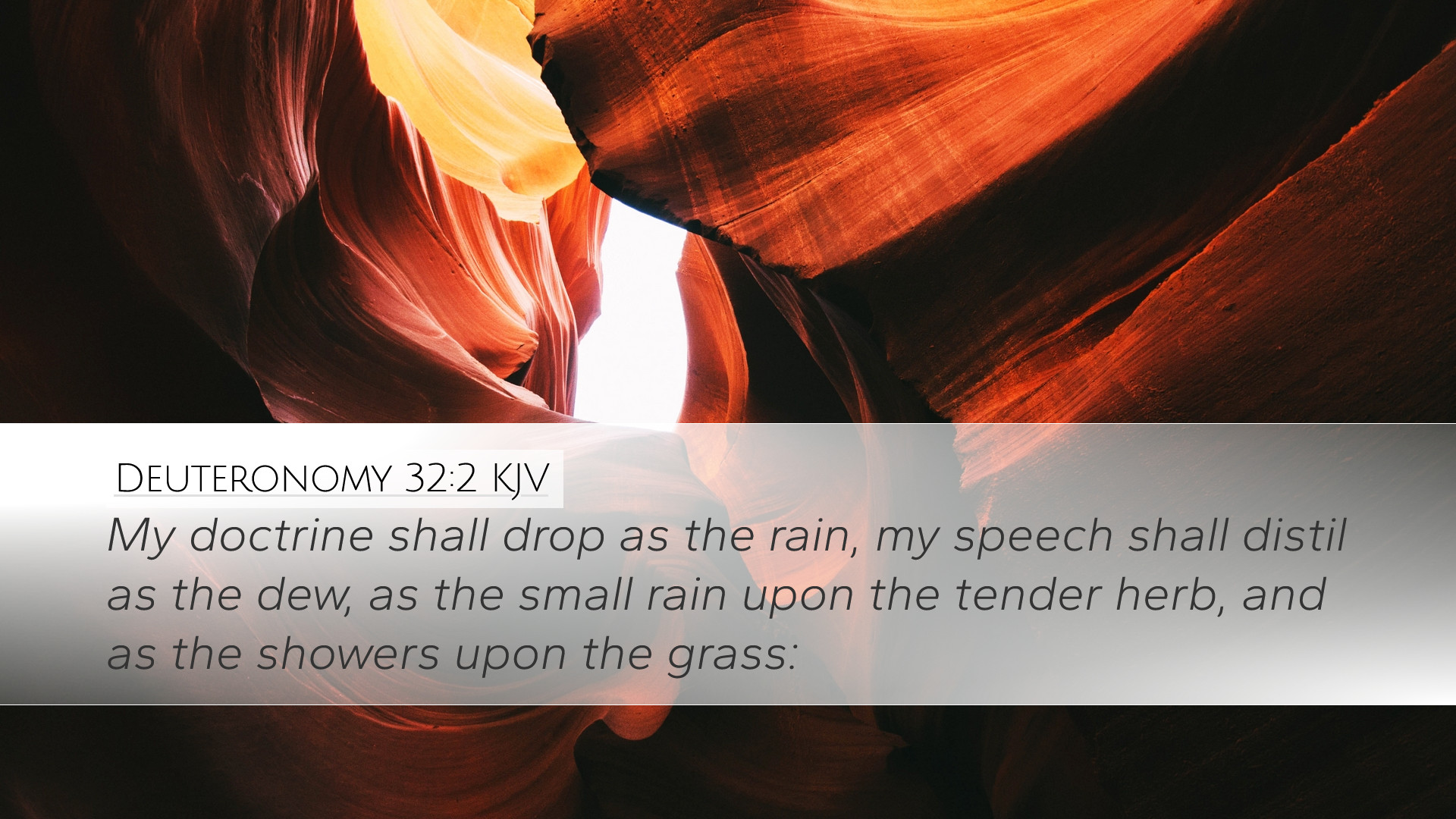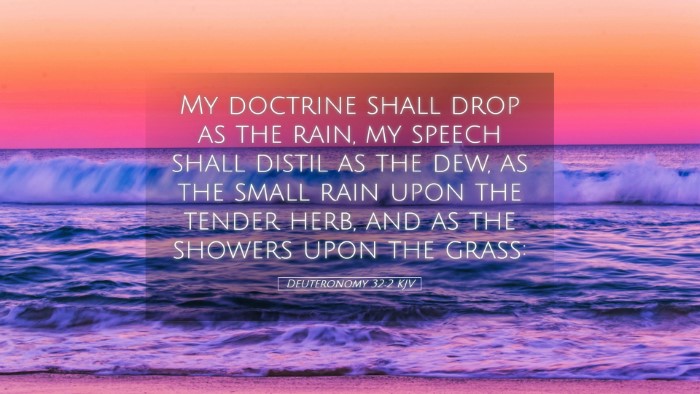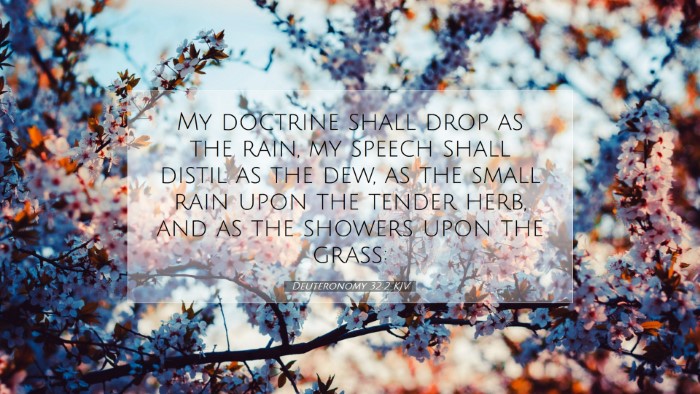Commentary on Deuteronomy 32:2
Verse: "My doctrine shall drop as the rain, my speech shall distil as the dew, as the small rain upon the tender herb, and as the showers upon the grass:" (Deuteronomy 32:2)
Introduction
Deuteronomy 32:2 is part of the final address by Moses to the children of Israel, encapsulating both the gravity and beauty of divine wisdom. This verse serves as a poignant introduction to the song that follows, reflecting the nature of God's teachings and their nourishing effect on His people. This commentary synthesizes insights from noted public domain commentaries, yielding profound meanings pertinent to pastors, students, theologians, and Bible scholars.
Understanding the Metaphor
Moses employs the vibrant imagery of rain and dew to convey the sustaining nature of his “doctrine.” The original Hebrew word for doctrine (תּוֹרָה, torah) extends beyond mere instruction; it encompasses both teaching and a way of life. The use of natural phenomena symbolizes how God’s instructions are intended to be both refreshing and life-giving.
Divine Instruction as Rain
- Moses’ Role: As a prophet, Moses communicates divine wisdom, akin to rain nourishing parched ground. This analogy highlights the essential role of God’s servants in delivering His word.
- Nourishment of the Soul: Just as physical rain sustains life, spiritual teachings are vital for the soul’s vitality, fostering growth and fruitfulness among believers.
The Nature of Speech
The term "my speech" refers not only to Moses' oral recitation but to the fundamental truths that undergird the Israelite covenant with God. The phrase suggests a duality—deliverance of doctrine accompanied by an emphasis on its gentle, pervasive nature, much like dew.
Characteristics of Dew
- Gentleness: Dew falls softly and quietly, signifying that God’s truths often come with subtlety and grace rather than force or coercion.
- Refreshment: Dew provides hydration early in the morning, illustrating how divine teachings revitalize the spirit and prepare the believer for the day ahead.
The Implications of Small Rain
Moses contrasts “small rain” and “showers,” indicating the varied ways God communicates with His people. While some messages may come as downpours, others grace the listener gently. This diversity teaches that God’s methods of instruction are tailored to the needs of His followers.
Theological Insights
The theological significance of this verse lies in its reflection of God’s character as a nurturing deity who desires that His people flourish. It demonstrates that divine truths are meant to be internalized and manifested in the believers’ lives.
God’s Covenant Relationships
One of the overarching themes in Deuteronomy is that of covenant. God’s doctrine, illustrated through Moses’ speech, reveals the mutual relationship He seeks with His people—one of faithfulness and responsiveness.
Covenantal Implications
- Faithful Instruction: The lifelong benefit of adhering to divine teachings leads to spiritual health and communal integrity among God’s chosen people.
- Reciprocal Relationship: God speaks, humans listen; this dynamic highlights the importance of engagement and reverence in the faith journey.
Modern Application
In contemporary settings, past and current leaders in various ministries can glean vital lessons from this text. It exhorts them to embody the essence of gentle yet firm teaching, echoing God’s method of leading His people into wholesome living.
To Pastors and Ministry Leaders
- Modeling Doctrine: Leaders should aim to deliver God’s word with clarity and sensitivity, ensuring that teaching is accessible and relevant.
- Creating a Nourishing Environment: Establishing a church culture that nourishes spiritual growth mirrors the dew-like refreshment described in the passage.
To Students and Theologians
For individuals engaged in theological studies, this verse underscores the significance of Scripture as a source of wisdom. Students are encouraged to pursue a deeper understanding of divine truths and their implications for personal and communal faith.
Conclusion
Deuteronomy 32:2 is a profound testament to the nature of God's teachings, characterized by gentleness, nourishment, and the promise of spiritual revival. It encapsulates not only Moses’ prophetic role but also the essence of the covenant relationship between God and His people. As modern believers, recognizing the importance of these teachings can lead to richer spiritual experiences and manifestations of God’s grace in our lives.
In summary, Moses' proclamation in this verse calls all believers to appreciate the beauty and significance of divine instruction. Attending to this doctrine, like the tender herb and grass under gentle rains, invites renewal and a fruitful life in Christ.


